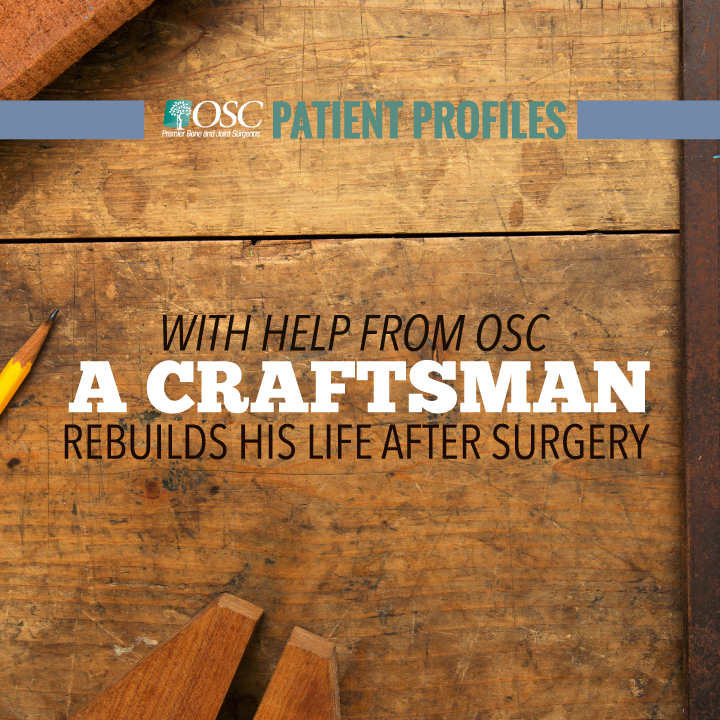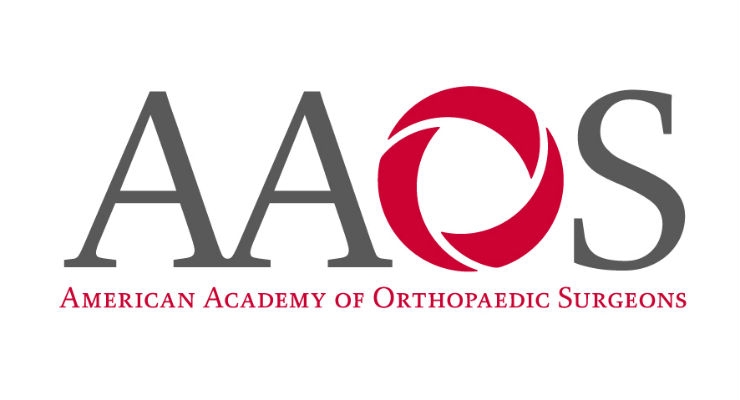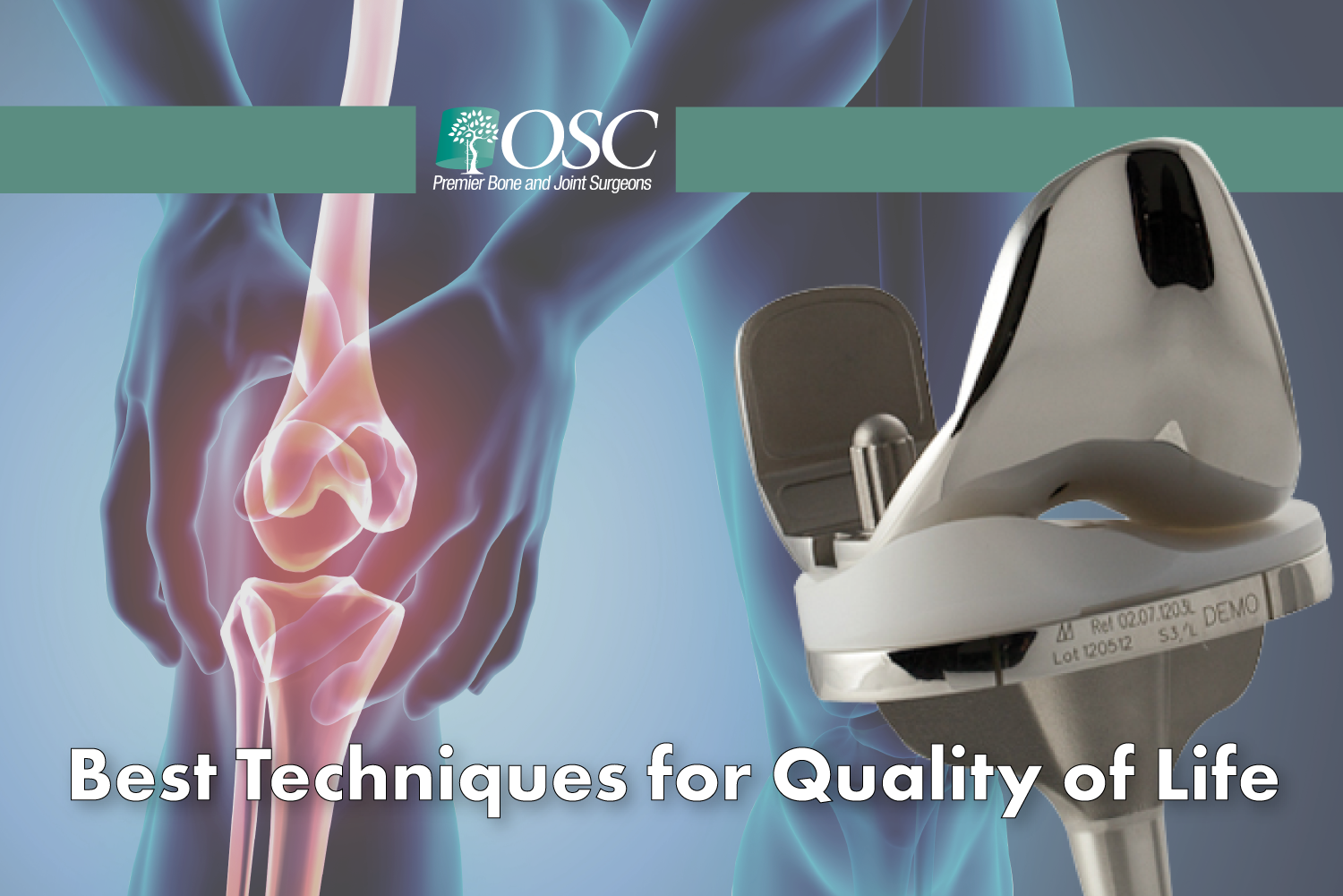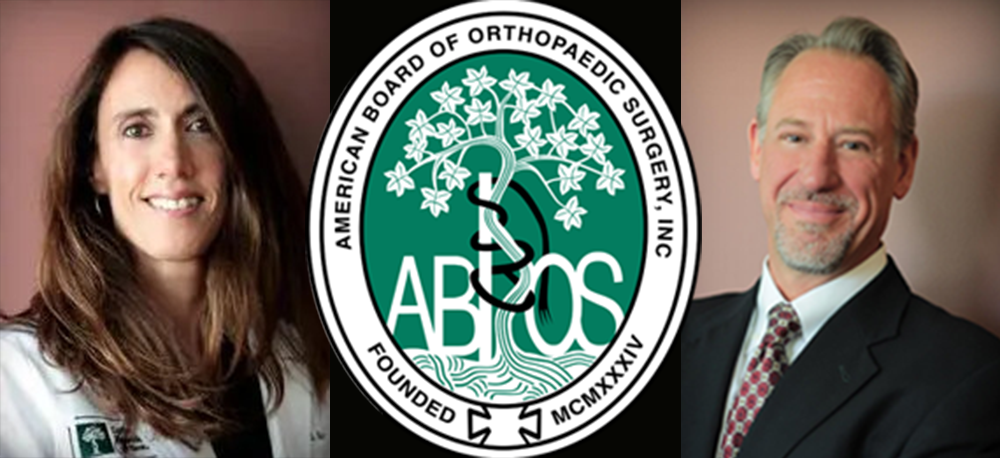 It’s hard for Len Zeoli to sit still. At 67, and now retired, he keeps busy, working six days a week. Speaking on the phone, he sounds like a person that is making his morning phone calls so he can clear out an entire day to devote to the work he loves.
It’s hard for Len Zeoli to sit still. At 67, and now retired, he keeps busy, working six days a week. Speaking on the phone, he sounds like a person that is making his morning phone calls so he can clear out an entire day to devote to the work he loves.
Len is a craftsman and an artist. He spends long hours making everything from furniture to custom art pieces in the shop attached to his home in Uniontown, Washington.
“I’m on my feet most of the day operating a chainsaw and heavy machinery,” he says, which is why, when the pain started up several years back, he ignored it and hoped it would go away.
A New Kind of Pain
Len had dealt with back pain in the past, but this was different, he had never felt this kind of pain in his knee before and when it started hurting in the Spring of 2014, it was entirely demobilizing. The pain grew to the point that it prompted him to make an appointment with his local doctor.
Finding the Right Care
After examining the pain and performing an arthroscopy, Len’s doctor told him that he had torn his meniscus, a debilitating and painful injury where the “padding” in the knee begins to tear or wear down over time. Len knew he would need some type of surgery, but felt uncertain of the level of care his local clinic could provide him.
Unable to work due to the pain, Len began to search online for the best orthopedic clinic and surgeon in his area. After hearing a recommendation from a friend about Dr. David F. Scott at OSC in Spokane, Washington, he looked into it further to see if it would be worth the drive all the way up from the Palouse.
“One of the most important factors for me in finding the right clinic was the level of post-operative care,” says Len. “The treatment I received locally just wasn’t very impressive, and I knew I needed a place that would not only provide a high level of care for the surgery but also somewhere that could facilitate post-operative rehabilitation. OSC was the perfect solution.”
Exceptional Care is Worth the Drive
Although Len loves the city that he’s from, in the end, this procedure was just too important to have any hesitation about the level of care he needed, something he felt when it came to his treatment from his local orthopedic doctor. After a lot of thought and consideration, he made the decision to make the hour and half drive north to Spokane.
After visiting OSC, Dr. Scott advised Len that a total knee replacement would be the best form of treatment -a procedure that would save him a lot of grief down the road with his torn meniscus. On May 28, 2014, Len underwent a total knee replacement surgery, a decision that he couldn’t be happier about now.
Getting back to Living
Now almost a year and a half after his knee replacement surgery, Len is just beginning to enjoy the new found freedoms of mobility.
“I’m not like an avid hiker, but walking and staying healthy is important to me. With my new knee, I have total freedom to be active in any way I wish.”
Asking Len what advice he might have for anyone having a knee replacement, he cautions, “this is a major surgery and recovery isn’t easy. In a very real sense, the surgery is just the beginning. It will take at least a year to totally recover, and the post-operative care is just as important as the surgery, but that is where OSC really shines.” With an excitement in his voice, Len says, “when I’m out for a hike or a walk, my knee doesn’t feel any different than it did before the injury. Although the joint is artificial, it’s manufactured to be exactly like the old one.”
OSC Comes Highly Recommended
When it comes to how he feels about his level of care and his experience with Dr. Scott, Len doesn’t hold anything back.
“To put it simply, Dr. Scott gave me my life back,” he says over the phone as he’s preparing to spend a day working in his shop, something he has a deeper appreciation for that he ever did before. As we speak, Len is finishing up several custom pieces for an art show in Coeur d’ Alene, something he’s excited about and working hard for. Something he owes to Dr. Scott, he says.
When asking Len what he would say to anyone considering OSC to treat their orthopedic injury, he is quick to respond.
“Dr. Scott is excellent of course, but the staff is also incredible. When I called OSC, if I couldn’t talk to someone right away, they’d get back to me, always in the same day. If I had any problems, they were there for me the whole time.” That was one of the major factors in Len’s choice of OSC: quality care from people who care. Now, he says he can’t recommend OSC enough to people.
“I’ve sent numerous people since my operation over to OSC. They’re just the best. They are attentive and caring, and it’s well worth the drive up to Spokane if you’re from out of town like me.”
A Closer Look at Knee Replacement Surgery
Len Zeoli is one of the thousands of people each year that undergo a partial knee replacement. Perhaps not as common is his great experience undergoing the procedure. This is the OSC difference: a combination of incredible doctors, office staff, therapists, and the latest technology in the industry.
Len Zeoli’s procedure was a MAKOplasty® robotically assisted partial knee replacement; a less invasive operation that allows for a faster recovery, and better function of the knee in post recovery. This type of operation is only available at select centers across the country and is in high demand. The surgery was assisted by the RIO® Robotic Arm Interactive Orthopedic System, which allows surgeons like Dr. Scott to achieve a new level of precision in joint replacement surgeries. During this process, a 3D print is created of the patient’s actual joint, so that the synthetic joint is exactly like the old one. This dramatically decreases the chance of future complications and gives patients like Len the feeling that they truly have their old working joints back. And in a sense, they do.
Reasons for Partial Knee Replacement
There are several reasons that people like Len Zeoli consider having partial knee replacement surgery. It’s a major decision, and with all major decisions, every alternative must be considered. Often, therapy, anti-inflammatories, and exercise are the first prescriptions before a joint replacement. Chronic swelling and stiffness due to arthritis that increases over time is a common reason for choosing to have a total or partial knee replacement. Osteoarthritis, rheumatoid arthritis or traumatic arthritis are the three common types of arthritis that affect the knee. Learn more about the knee, knee injuries, and treatments here.
Several Types of Arthritis
Osteoarthritis, like Len’s, is when cartilage on the gliding surface of the knee begins wearing away, causing pain and stiffness. When the cartilage wears away completely, the bones rub directly against each other, causing decreased mobility and chronic pain. Osteoarthritis is most common in people 50 and older but is also prevalent in those with a family history of arthritis or those with lifestyles that stress the joints, such as athletes and people who are on their feet most of the day.
Rheumatoid arthritis is an autoimmune disease in which the immune system begins to attack the synovial membrane, causing it to become inflamed and overproduce synovial fluid (the fluid that lubricates your joints). More importantly, the process also causes damage and wear to the articular cartilage which commonly results in a knee replacement procedure.
Traumatic arthritis results from a serious knee injury, such as a fracture, ligament damage or meniscus tear. The impact of the accident also causes mini trauma to the articular cartilage which, over time, develops into osteoarthritis, causing knee pain and stiffness.
The OSC Difference
When chronic pain decreases your quality of life, and nothing else works to relieve it, it may be time to have a joint replacement. OSC is the leading orthopedic clinic in the Inland Northwest and has its own on-site recovery center to help you take the next step after surgery. If you are struggling with an orthopedic injury, OSC is here to help walk you through the whole process of recovery.
Grateful
By choosing joint surgery like a knee replacement, you’re choosing a better quality of life. Having full mobility can get you back to living your life and doing what you love, like Len creating custom pieces in his shop.
As he’s getting ready to hang up the phone to get to work, he says, “When you write this story, be sure to use the word ‘grateful’, ‘cause that’s what I am. Extremely grateful to Dr. Scott and the people at OSC.”




